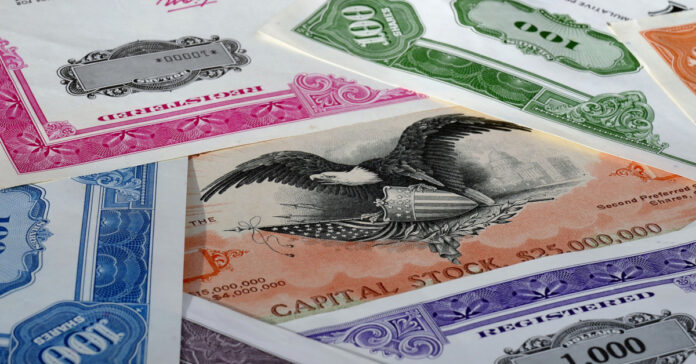The banking and financial system today is far different from that of my childhood. When I opened my first bank account, I got a passbook savings account which included a small bound book about the size of a passport. When you made a deposit, the teller would open your passbook, stick it in machine and press a button. It would print the amount of your deposit and the total balance on the page. As long as you had the passbook, you had access to your money.
When I went off to college, I opened a checking account and got monthly statements in the mail. I don’t believe they offered me a debit card. That was OK because writing a check was a common payment method. If you needed cash, the bursar’s office at college would cash a check for you. Of course, people also carried cash, which was a common method of payment. If you traveled, you could use American Express Traveler’s Cheques at any hotel or other business serving tourists.
When I got to college, they were practically giving credit cards away to anyone who was 18 and could legally take on debt. I did, and I got in debt. (It took the next 20 years to get out of debt. I haven’t had a Visa or Mastercard since.) They all sent paper statements. Today, not a single bank or financial institution I deal with sends me hard copies.
The Biggest Change
Back then, it might take a week for a check to clear, longer if it was from an out-of-state bank. Today, my deposits clear within 24 hours. And you can send ACH transfers or wire funds, or use services like PayPal, Venmo, or Cash App, to send money to anyone within seconds.
While the system today may be faster and more efficient, the bank’s policies have changed for the worse. When you deposit money into the bank, it is no longer your money. Instead, you have lent your money to the bank and they owe you. They aren’t holding your money; they are holding a liability. When I was young, if a bank failed, and the FDIC took over and backed the money in the accounts up to $100,000, a number that was later raised to $250,000. If you have more than that in an account, the bank may use that money as part of a “bail in” and—Poof!—your money is gone.
We are reaching a point where banks no longer fail. They just become insolvent. If you are lucky enough to have more than $250,000 in cash, split it between multiple banks.
Stocks and Bonds, Too
When you buy a stock, you no longer own it in a physical, tangible way. When was the last time you saw a stock certificate? Whatever large financial company you deal with holds your investments, and they assign you the shares to you in your account. Back in the day, you used to get a stock certificate, a fancy sheet of paper that conferred ownership of the listed number of shares in a specified corporation. Now all you have is a promise from a broker or investment company. When the power goes out for a decade and the computers crash, no one will know who owns what, and when the power finally comes back on, it will be very difficult to prove that you had $1 million in your IRA. Even if you have perfect records, the companies you owned shares in are unlikely to be around.
Of course, you can trade online now. Back in the day, if you wanted to sell, you had to hand the certificates over to your broker. Once again, we see transactions are faster, easier, and more efficient. But you have less physical control over your assets.
This raises an important question for prepper: What happens to those intangible assets when the SHTF, the power goes out, the server farms shut down, and the financial industry collapses?
Where is Your Paperwork?
Do you have hard copies of recent bank account statements or investment/retirement accounts? Do you have a hard copy of your homeowners or life insurance policy? Where are your estate planning documents?
I know preppers who keep this information on a thumb drive. That’s a good start, but it’s probably better to print out hard copies of critical documents at least once a year and lock them in a fireproof safe. Don’t count on a safe deposit box, although you could have a backup set there, because you may not be able to access it during or after a crisis.
While you are at it, consider printing some of your favorite family photographs. All those thousands of photos you store in the cloud may disappear forever in the flash of a nuke.
Tangible Assets
Unlike stocks and bonds, any physical assets you own and have within your grasp or control will still be useful to you during a societal collapse, nuclear war, or other SHTF scenario. You may have to fight to protect them, but if can hang on to them, you can use them. That might be cans of Spam, buckets of wheat, ammo cans of 5.56., or a stash of silver quarters and dimes. It might be real estate or gold coins. Even a tractor or a log splitter are tangible property that are useful before, during and after a significant SHTF event.
But what happens after a recovery? You will still own your tractor, any remaining guns and ammo, and hopefully you’ll still have some junk silver, but how will you prove you own your home? Chances are, possession will be 9/10ths of the law. What are the odds that the bank will come and try to reinforce the mortgage? It wouldn’t surprise me if the same bank that can’t find a record of your bank account will find your mortgage and want to charge you interest for all your “missed” payments.
Abandoned Real Estate
Let’s say the worst-case scenario comes to pass and in some event we lose grid power and there is a total collapse of society. Like the government estimates, 90 percent of the population dies in the first year. Through good planning and luck, you manage to hang on. After five years, you hear rumors of a recovery. Word is, down in Texas, they have gas and electricity. After ten years, the recovery is complete. You have power again, the gas stations reopen, a large grocery store has fish and imported fruit you haven’t eaten in a decade. Things have settled down into the new normal, but there are many fewer people.
The individual who owned the 57 acres across from you but only came up two or three times a year never showed up during the collapse. That first winter, when you were hungry, you raided his cupboards for anything edible. Then you took his firewood, even though it was just a small pile. Over time, you drained his propane tank. When one of the kids dropped a lamp and broke the chimney, you took your neighbor’s kerosene lantern. After that, it just seemed natural to cut down the easily accessible dead trees on his property to help rebuild your firewood for the coming winter. Over time, you may have felled a few that weren’t dead. A few years later, when the number of goats in your little herd grew from five to nineteen, you drove them over to his property to allow your pasture to recover. The goats had stripped yours clean, but his land could feed them for years. As the ten years pass, you come to think of that land as yours.
Post SHTF Problems
When things finally get back to normal, who owns that land? The original owner is dead. If he had a will, it no longer exists. No one knows if he has any living heirs because he lived in Atlanta, and it’s a burned out shell being mined for copper and steel to feed the recovery. Can you lay claim to the land? Is possession 9/10ths of the law in this case? It will take some time to sort out questions like this.
In any serious SHTF situation where financial institutions collapse or cease to exist, where companies go belly up because they cannot function, or where there is a large die off, there will be an enormous amount of legal problems after the recovery. So keep your paperwork handy. Don’t expect to get all of your “wealth” back if it is made up of bits and bytes in the cloud, and have enough tangible assets to see you through the tough times.








Excellent advice… Thanks for posting.
Comments are closed.